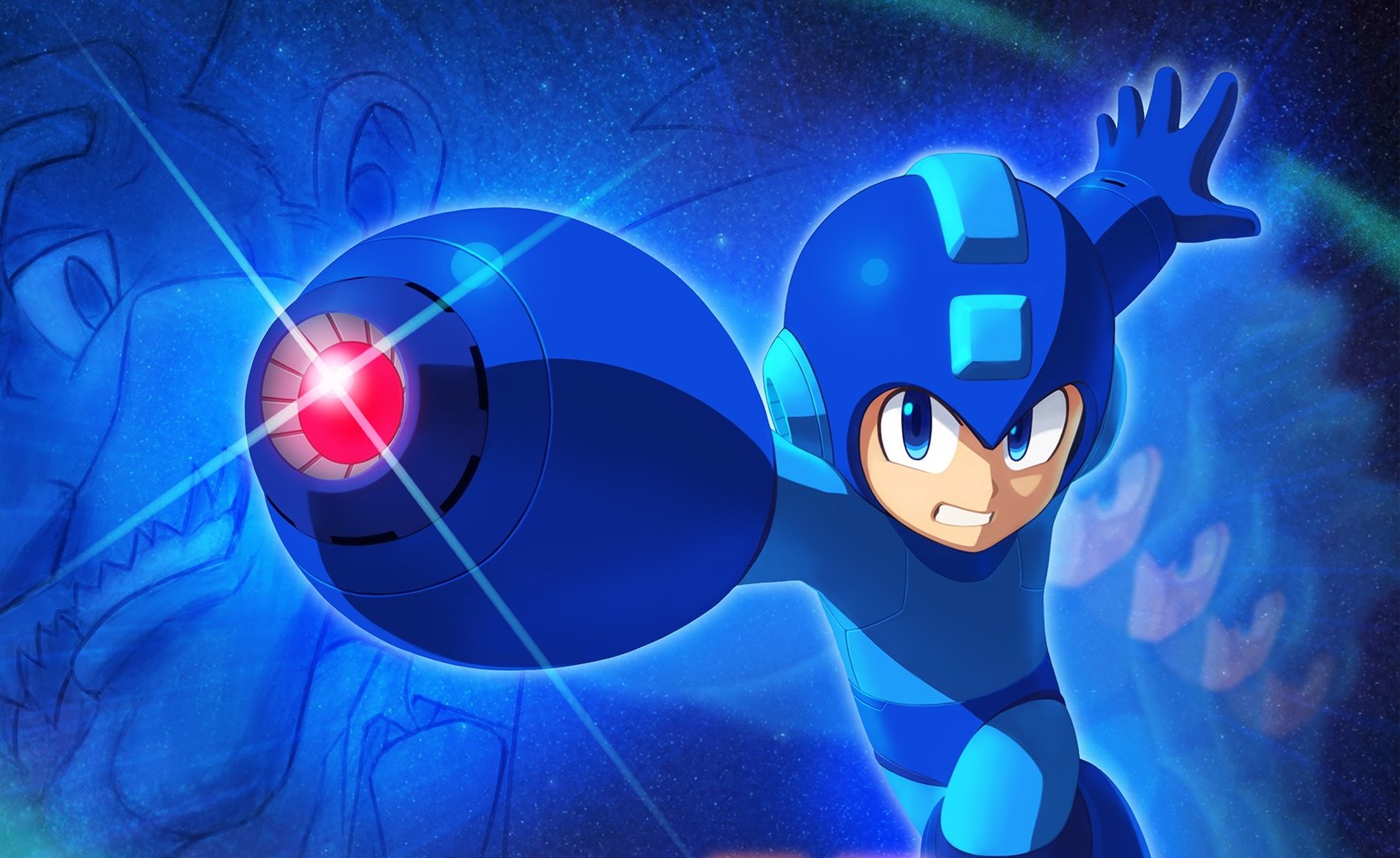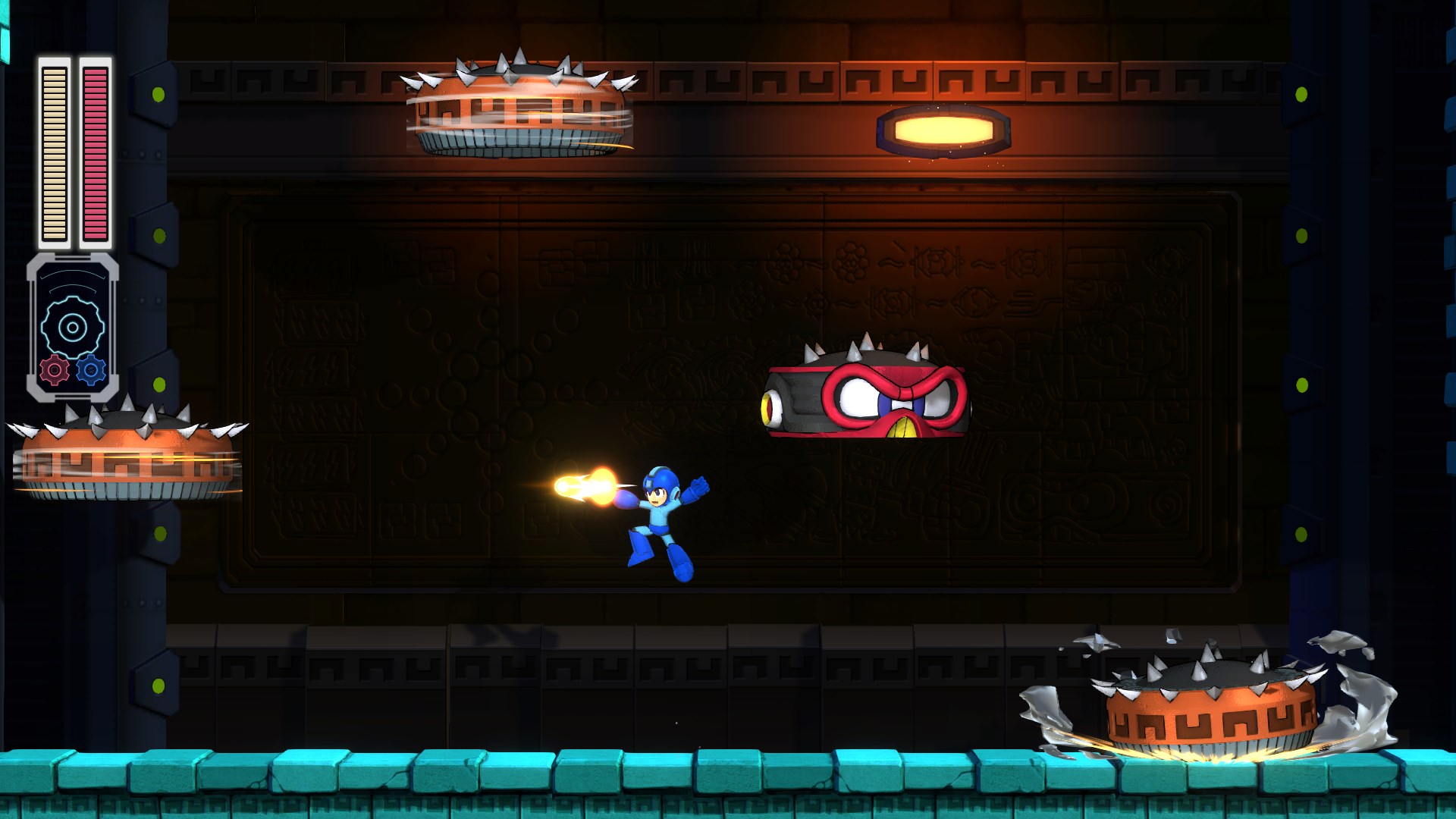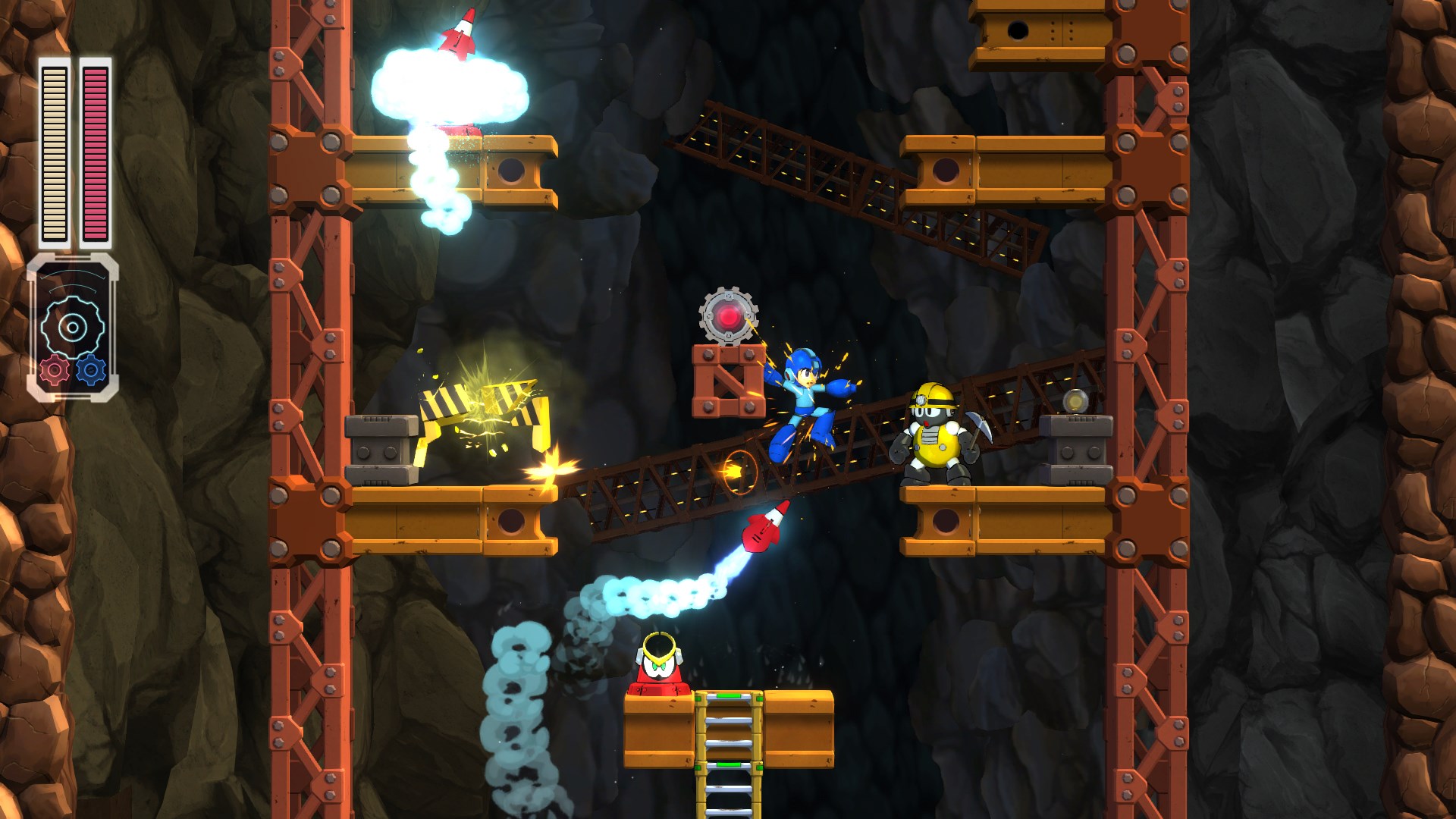Mega Man 11's new slow-mo power finally makes the series accessible to scrubs like me
The Double Gear system is basically bullet time.

Mega Man games have never been the friendliest. The series is built around complex pattern recognition and frame perfect platforming. It's a strict school of game design that's since migrated to roguelikes, where failure is tempered somewhat by surprising systems and remixed levels. It makes the idea of a new Mega Man game feel a bit out of place in 2018.
Mega Man 11, releasing October 2, is the first in the series since 2010. At first glance it looks just as tough as the 10 games that preceded it, and it is. But after giving Mega Man 11 a shot in a short demo, it’s clear Capcom is poised at giving newcomers a helping hand without sacrificing the challenge that enthusiasts live for. All it took was adding bullet time.
Even so, I hit my first continue screen in three minutes. The next time I make it a little over five. The stage is named for Blast Man, a level full of explosives that do their big fiery thing whenever coming into contact with projectiles, my enemies' or my own, and by stepping on tripwires. I enter the same choke point lined with explosives again and again, thinking I'll get it eventually.

Each time I move through, enemy mortar fire rains down on my position. Everything, in flames. My health takes a massive hit, as you'd expect. I know there's a way through, I just can't see it yet. No doubt that as the the level progresses, placement of the explosives becomes more frequent and intricate. Many deaths later, I give up and shamble over to the Fuze Man stage.
Slow down
To my surprise, it's 2018 and here I am, a potential Mega Man convert.
It's where I discover the Double Gear system, Mega Man's inexplicably-named take on bullet time. Double Gear lets you temporarily slow down time or boost the firepower of Mega Man’s buster cannon, both of which help tremendously with mastering the timing of tricky jumps and precise attacks.
On the Fuse Man stage, one room requires me to reach a high platform, but the path there is littered with horizontal and vertical lasers that flicker on and off. A seasoned Mega Man player could probably get there without the aid of Double Gear’s slowdown mechanic, but not me. I use it without shame.
Navigating the laser grid and jumping between platforms while timing movement with Double Gear feels great, giving me just enough leeway to not screw up all the time. I still screw up, of course. Double Gear isn't a win button and there are limits in place to prevent desperate people like me from abusing slow-mo too often.
The biggest gaming news, reviews and hardware deals
Keep up to date with the most important stories and the best deals, as picked by the PC Gamer team.
To stop anyone from playing the entire game at half-speed, Double Gear use is tied to a meter that depletes quickly and recharges over time. Fail to ease off the gas and you'll overload the system entirely, forcing a longer cooldown before it can be used again. It's designed to be used in small doses or as a last ditch effort to pull out of a tight spot, not as a superpower.
With a better understanding of the Double Gear system, I return to the Blast Man stage after besting Fuze Man. The initial explodey death hallways aren't a problem anymore. I slow time to avoid mortar fire, slide through narrow pathways, and pick shots carefully when setting off explosives. Double Gear helps me see the levels more clearly, and serves as the training wheels for understanding platforming patterns and enemy movements before handling them without any help.

I saw marked improvement in my skill over a short demo, largely thanks to the Double Gear system, though I still have plenty to learn. My final trial is Blast Man. He fires heaps of bombs as he jumps around the arena, and by the time I halve his health the bombs triple in size—it's too much for me to keep up with. I fail to take him out, but at least now I know I can.
My pile of rapid failures followed by surprising successes thanks to a slow-mo teaching tool has piqued my interest in playing the final game. It’s nice when a game adopts the old design philosophy of nudging the player through endless trial and error to see what works and what doesn’t. It feels unforgiving, but everything you need know to progress is right in front of you. Double Gear makes the busy levels easier to parse and the trial and error easier to bear. And for the purists slowly turning up their noses, it's an entirely optional system.
Before my time with Mega Man 11 I didn't have much interest in the series. But to my surprise, it's 2018 and here I am, a potential Mega Man convert. That's quite the achievement for such an old series largely sticking to its arm-guns.

